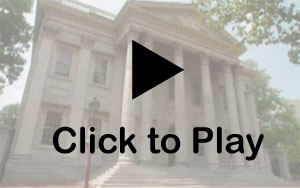Bank War
In recent years, the federal government has spent trillions of dollars “bailing out” the nation's financial system. Many Americans opposed this vast expenditure and grew more suspicious of the large Wall Street investment banks. A similar controversy erupted during Andrew Jackson's presidency. The financial issue dividing Americans at that time centered on the Bank of the United States.
In 1823, Nelson Biddle assumed the presidency of the Bank of the United States. Under Biddle, the B.U.S. effectively regulated the state banks, while providing a sound system of credit for the nation. Many Americans remained suspicious of the B.U.S. and believed it used paper money, which could depreciate in value, to exploit farmers and laborers. These opponents of the B.U.S. called for a currency system based on hard money (silver and gold).
The President himself was among those wary of the B.U.S. A disastrous experience with bank notes earlier in his life had left Jackson suspicious of banks and paper money. As president, he believed the B.U.S. granted special privileges to large businessmen and used its power to benefit a small group of eastern elites at the expense of the majority.
In 1832, Henry Clay, hoping to find an issue to use against Jackson in the upcoming election, convinced Biddle to apply for recharter four years before the old charter expired. Congress approved the recharter application, but Jackson vetoed it. In the campaign of 1832, Clay warned that Jackson's campaign against the B.U.S. would wreck the national economy. Jackson's supporters countered by criticizing the B.U.S. as an aristocratic institution that oppressed the common man. Largely because of his personal popularity, Jackson easily defeated Clay to win reelection.
![]() Video: Jackson Censured in Bank War
Video: Jackson Censured in Bank War
Click the image to watch Jackson Censured in Bank War
Jackson ordered his treasury secretary to remove government deposits from the B.U.S. and place the money in state banks (called pet banks because they were controlled by Democrats loyal to the administration). With his institution crippled without federal deposits, Biddle curtailed loans and restricted credit. Business failures and bankruptcies followed. Congress censured Jackson for abusing his power, but public opinion remained with the President. Anti-B.U.S. sentiment grew and most people blamed the B.U.S. for the recession. Jackson completed his victory when the B.U.S. charter expired in 1836 with no renewal.
